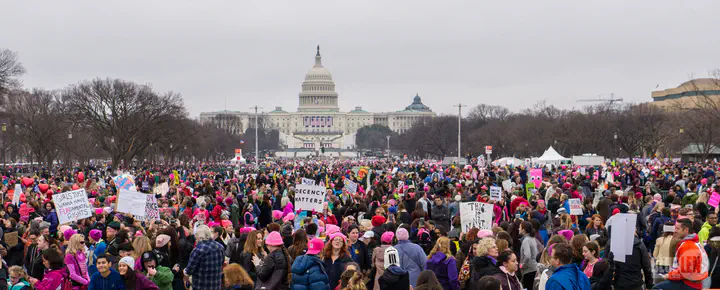Non-Disruptive Protest Can Work: Evidence From the Women's March
 Image credit: Mark Dixon via Wikimedia Commons
Image credit: Mark Dixon via Wikimedia CommonsUnder Review
Abstract
Do protests impact politics? Many scholars argue they do, but disagree about their mechanisms of impact, with some arguing protests must disrupt to have impact while other focus on protest’s processes of political activation. Findings on protest’s political impact from prior literature also often suffer from endogeneity problems that make it difficult to tease out causal relationships. In this article, I provide a rigorous test of the political impact of protest in a case that allows for further insight into the mechanisms for protest’s impact: the 2017 Women’s March in the United States. I test the impact of the Women’s March using detailed geo-coded data on local marches’ size and location. To isolate the Marches’ effects I employ an instrumental variables analysis, instrumenting march size with precipitation and temperature data. I measure the effects of instrumented march size on three variables: the creation of “Indivisible” groups, donations to Democratic politicians, and 2018 election Democratic vote share. I find the Women’s March had a significant positive effect on all three dependent variables. These findings provide strong evidence that protests can have significant political impacts, even when they involve no disruption.